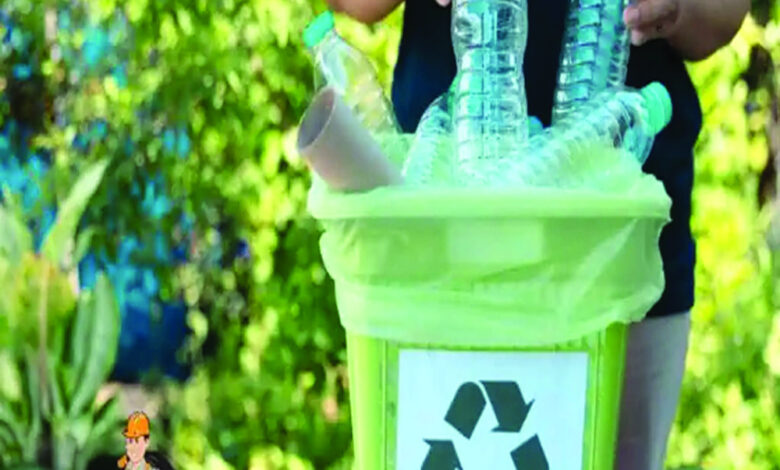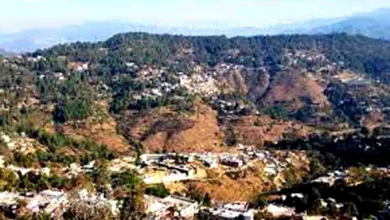GUEST COLUMN : A choice against plastics: Towards ecological empowerment

 Neeraj Kumar Pande
Neeraj Kumar Pande
Uttarakhand has been rightfully bestowed with the epithet ‘The Land of Gods’ owing to its mesmerising natural beauty, myriad cultural heritage and deep spiritual significance. Its serene landscapes and tranquil environment are metaphoric reflections of a pervasive divine presence here. However as the world gallops towards an uncertain future now, with climate change encroaching upon civilisation at a meteoric pace, Uttarakhand’s varied terrain and biodiversity are incessantly battling the onslaughts of anthropogenic ecological changes. Environmental degradation has spiralled up to a point where identifying and addressing any individual aspect is synonymous to tapping into a pandora’s box. However, the most nagging aspect of this ecological tribulation is the persistent prevalence of plastics and polythene. More particularly the wide usage of direful Single Use Plastics (SUPs). SUPs are those plastic products that have a one-time use before they are discarded. Very often these kinds of plastics are not disposed of properly, and therefore these are not recycled either. Plastic containers, straws, coffee stirrers and mineral water bottles, along with the majority of food packaging are some popular instances of how SUPs remain pervasive in local markets and tourist destinations. Although cutting out on SUPs has always been a dominating agenda for environmental crusaders for decades, the discourse only got reinvigorated when recently the Prime Minister Narendra Modi fondly addressed the residents of Uttarakhand on its foundation day and urged them to protect the ecosystem of the State. Not only did he ask the people to plant one tree in the mother’s name to protect the environment and fight climate change but also appealed to tourists visiting Uttarakhand to mindfully avoid using single-use plastics in the Himalaya.
This special address by Modi has come as a watershed moment at a time when many regions of the State like Joshimath and Kedarnath to highlight a few, are still struggling to stabilise after a spate of natural calamities unfolded in these areas in the last few years. It would not be hyperbolic to say that as a region cradling in the lap of prodigious Himalaya, Uttarakhand has become a victim of the development paradox. On the one hand the region presents an extremely fragile mountainous topography and on the other, post its statehood in 2000, there have been pressures of a burgeoning population, commercialisation and concretisation. The tremendous potential for religious and ecological tourism in the State has been pushed to its utmost limit albeit in an unsustainable manner. In 2023, the State had registered 5.96 crore visitors, a 61.79 percent increase from 2018 statistics. However, practices including waste segregation at tourist spots, timely collection and recycling of biodegradable and feasible disposal of non-biodegradable waste, are mostly absent or ad hoc. Not only have the local municipal authorities been lax at implementing Solid Waste Management (SWM) Rules but the community sensitisation is largely missing. No wonder then that famous tourist spots are dotted with heaps of uncollected litter, most of which comprises SUP’s in the form of discarded food packages and plastic bottles.
The SUP waste poses a multifaceted danger to not only humans but wildlife and flora as well. The toxic fumes which erupt as plastic waste is carelessly burnt by some people possesses the potential to cause respiratory illness among people and also contributes to a deteriorating air quality. These fumes pose a critical danger to rag collectors and other workers who segregate and handle waste. Several towns in Uttarakhand still rely on landfills to dispose of solid waste, but these sites are now overburdened and poorly managed, causing leachate and methane emissions. Inadequate processing of waste also means that recyclable materials which could generate wage employment, are often wasted.
Majority of times plastic waste seeps into open wetlands including canals, rivulets and drains. The ensuing blockage of water flow triggers a chain response ranging from water logging, road spill overs and flooding during monsoons. Stray animals suffering fatal consequences upon plastic consumption is a known issue which is often brushed under the carpet. The Garhwal and Kumaon regions, home to sacred rivers like the Ganga, are particularly vulnerable to these pollutants, which degrade soil quality and hinder the natural resources which sustain local communities. The most critical dimension of the SUP crisis manifests as microplastic contamination.
When irrigation water including groundwater reserves get polluted with microplastics, they eventually enter the water cycle as well as the food chain. Several clinical investigations of animal models indicate that microplastics have been causing oxidative damage, DNA disruptions and complex chronic health disorders. Plastic waste leaching harmful chemicals into rivers which generate drinking water has been hence endangering public health in a major way.
The SWM Rules in India, primarily outlined in the Solid Waste Management Rules, 2016, and amended in 2020, had clearly provided guidelines for managing plastic waste. One of the main agenda these rules had outlined was the phasing out of certain types of single-use plastics, including plastic carry bags, cutlery and straws. The Indian government had also announced a nationwide ban on single-use plastic items in 2022, with implementation deadlines set for various products, like plastic bags, which have a thickness of less than 75 microns. Despite the legislation however, the use and impact of single-use plastic in Uttarakhand has been profound, impacting not only the natural environment but also public health, tourism, as well as agriculture. Tackling the issue demands a systematic and coordinated approach which includes stringent enforcement of plastic bans, investment in waste management – disposal infrastructure and greater public awareness about sustainable alternatives. It remains an irony that despite the existence of strict SWM Rules, it is the lack of ground level implementation which has exacerbated this waste menace. Perhaps some innovative and community level initiatives are the need of the hour. Some of these could include SUP sensitisation workshops in schools, local businesses promoting paper and other plant based packaging and promoting women SHG’s in the mountain villages towards manufacturing organic packaging materials. Local governments and environmental enthusiasts must work together to organise cleanup drives and advocacy campaigns to reduce plastic consumption. Social media platforms have a massive untapped potential which should also be utilised to spread the message, reaching a wider audience, including the youth, who can prove to be most influential agents in this environmental crusade. For a real renaissance to emerge, where the magnificent ecology of Uttarakhand can be preserved and restored, a proactive community action is the only choice, where we begin believing that we are nothing but a microcosm of our environment itself. Hence nurturing the ecology is not very different from nurturing our own selves.
(The author is a retired civil servant; views expressed are personal)






